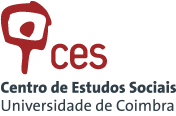Seminário
Exploration of "Open Spaces" for Changing Research, Teaching, Science, and Society
Peter Taylor (University of Massachusetts Boston)
25 de maio de 2011, 10h30-13h30
Sala de seminários (2º piso), CES-Coimbra
Summary
The metaphor of "open spaces" is used to highlight the value of discussion, reflection, and clarifying one's identity and affinities with both academic and action dimensions kept in view. The young Karl Marx proclaimed that the "philosophers have only interpreted the world, in various ways; the point, however, is to change it." But what happens when we allow for more dialogue and deliberation before, or as a complement to, jumping into campaigns for change?
In this interactive session, Peter Taylor will a) review his explorations of interaction-intensive workshops and new social media in the arena of science and social change as well as b) lead participants to experience some tools and processes conducive to open-space work in the hope that they will explore these tools and processes.
Provisional schedule: 1. What the audience brings to the session-expectations & puzzles; 2. Review of the New England Workshop on Science and Social Change, leading to 3. the "4Rs" framework for cultivating collaboration; 4. Mapping the kinds of spaces we inhabit online; 5. Dialogue Process; 6. Critical Incident Questionnaire; and 6. Looking ahead. See <http://sicw.wikispaces.umb.edu/UC11> for more details.
Biographic notes
Peter Taylor - After doctoral studies in ecology (Ph.D., Harvard University 1985), with a minor focus in what is now called Science and Technology Studies, I combined scientific investigations with interpretive STS inquiries, my goal being to make STS perspectives relevant to life and environmental students and scientists (MIT, New School, U.C. Berkeley, Cornell University, 1985-96). Critical thinking and critical pedagogy/reflective practice became central to my intellectual and professional project as I encouraged students and researchers to contrast the paths taken in science, society, education with other paths that might be taken, and to foster their acting upon the insights gained (Biology & Society program, Cornell; Eugene Lang Professor for Social Change, Swarthmore College; U. Mass. Boston 1998-present).
Bringing critical analysis of science to bear on the practice and applications of science has not been well developed or supported institutionally, and so I have contributed actively to new collaborations, programs, and other activities, new directions for existing programs, and collegial interactions across disciplines (e.g., International Society for History, Philosophy and Social Studies of Biology; New England Workshop on Science and Social Change, Organizer, 2004-present; editing Changing Life: Genomes, Ecologies, Bodies, Commodities, U. Minnesota Press, 1997). The integration of science, interpretive studies of science, and facilitation of critical, reflective practice is evident in my book, Unruly Complexity: Ecology, Interpretation, Engagement (U. Chicago Press, 2005).
In recent years, I have transferred this three-level engagement with complexity from ecology to social epidemiological approaches that address the life course development of health and behavior. As a Professor at the University of Massachusetts Boston, I direct the Critical and Creative Thinking Graduate Program, the undergraduate Science, Technology & Values Program, and the new Science in a Changing World graduate track. My aspiration is to foster education and research that supports people to become resilient and reorganize their lives, communities, and economies in response to social, environmental changes (Taking Yourself Seriously: Processes of Research and Engagement, with J. Szteiter, book ms.).
Seminário integrado no ciclo Researching knowledge talks and workshops
Enquadramento: Como se investiga o conhecimento? Esta é uma questão central para os estudos da ciência. Durante 2011, uma série de palestras e workshops serão levados a cabo no Centro de Estudos Sociais, organizado pelo Núcleo de Estudos sobre Ciência, Economia e Sociedade, relacionados com as tendências de investigação em curso nos estudos da ciência e na sua intersecção com campos de investigação como saúde, meio ambiente, os seus públicos-alvo e suas diferenciadas implicações sociais.
Esta série de eventos irá acompanhar o desenvolvimento dos vários projectos de investigação em curso no NECES. As palestras são abertas a todos os pesquisadores, profissionais e estudantes que estão envolvidos ou que tenham interesse na matéria.
Organização: Rita Serra e João Arriscado Nunes, NECES

